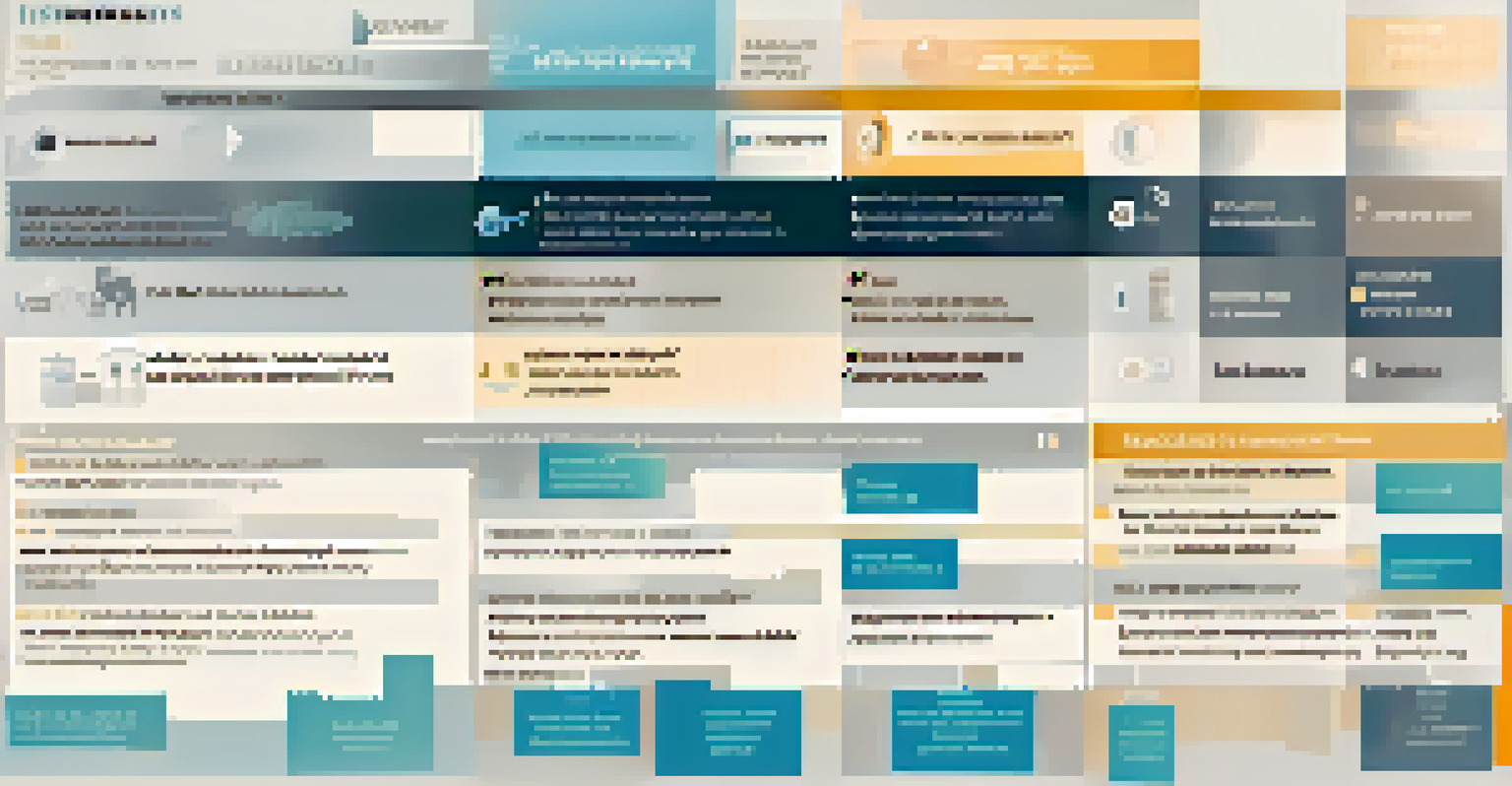Understanding Your Rights as a Mortgage Borrower Explained

Your Basic Rights as a Mortgage Borrower
As a mortgage borrower, you have fundamental rights that protect you during the loan process. These rights include the right to receive clear information about your mortgage terms, fees, and conditions. Understanding these rights empowers you to make informed decisions and avoid potential pitfalls.
An informed borrower is a successful borrower.
For instance, you are entitled to a Loan Estimate, which outlines the costs associated with your mortgage. This document helps you compare offers from different lenders, ensuring you choose the best option for your financial situation. Remember, being informed is your first line of defense.
Additionally, you have the right to access your credit report, which plays a crucial role in determining your mortgage eligibility. By checking your credit report, you can address any inaccuracies before applying for a loan, ultimately enhancing your chances of securing favorable terms.
The Right to Fair Lending Practices
Every mortgage borrower has the right to fair lending practices, meaning lenders cannot discriminate based on race, gender, marital status, or age. This protection is outlined in the Equal Credit Opportunity Act (ECOA), which promotes fairness in the lending process. If you believe you’ve been treated unfairly, it's essential to know you can file a complaint.

For example, if a lender denies your application without a valid reason or offers you less favorable terms compared to others, this might be a violation of your rights. Documenting your interactions with the lender can be helpful if you need to pursue further action.
Know Your Mortgage Rights
As a mortgage borrower, understanding your fundamental rights helps you make informed decisions and protect yourself during the loan process.
Remember that fair lending practices also extend to the appraisal process. You have the right to a fair appraisal, meaning your property's value should be assessed accurately and without bias.
Understanding the Loan Estimate and Closing Disclosure
When you apply for a mortgage, you’ll receive two crucial documents: the Loan Estimate and the Closing Disclosure. The Loan Estimate provides a snapshot of your mortgage terms and estimated costs, while the Closing Disclosure details the final terms before you close the deal. Understanding these documents is vital for ensuring that you’re fully aware of your financial obligations.
The best way to predict the future is to create it.
When you receive the Loan Estimate, take the time to review it carefully. If something seems off, don't hesitate to ask your lender for clarification. This proactive approach can prevent misunderstandings later in the process.
The Closing Disclosure, provided at least three days before closing, gives you a last chance to review all the costs associated with your loan. Make sure to compare it with your Loan Estimate to ensure no unexpected fees have appeared.
Your Right to Rescind Under Certain Conditions
One of the unique rights you have as a mortgage borrower is the right to rescind or cancel your loan under specific circumstances. This right is particularly applicable to certain types of loans, such as those secured by your primary residence. Knowing when you can exercise this right can provide peace of mind during the borrowing process.
For example, if you feel pressured into signing, or if you discover misleading information after closing, you may have the option to rescind the loan. Generally, you have three business days from the closing date to exercise this right, so it's important to act quickly if necessary.
Fair Lending Practices Matter
You have the right to fair lending practices, ensuring that lenders treat you without discrimination based on race, gender, or other factors.
Rescinding a loan essentially allows you to return the borrowed funds and cancel the mortgage as if it never happened. However, be sure to understand the implications and process involved, as this can vary depending on your lender.
Rights During the Loan Servicing Phase
Once your mortgage is in place, your rights don’t end. As a borrower, you have rights during the loan servicing phase, which includes how your loan is managed. This means you have the right to receive accurate information about your loan balance, payment amounts, and any changes to your mortgage terms.
Additionally, if you encounter financial difficulties, you have the right to request assistance from your loan servicer. They must inform you about available options, such as loan modifications or forbearance, which can help you avoid foreclosure.
Understanding your rights during this phase is crucial, as it empowers you to communicate effectively with your loan servicer and advocate for yourself in challenging situations.
Your Right to Privacy and Data Protection
As a mortgage borrower, you have the right to privacy and the protection of your personal information. Lenders are required to safeguard your data and can only share it under specific circumstances outlined in the Privacy Act. Understanding this right helps you maintain control over your sensitive information.
For instance, you should be aware of how your personal information is being used and shared. If you feel your data is being mishandled, you can request an explanation from your lender and seek remedies if needed.
Communicate Openly with Lenders
Establishing clear communication with your lender is crucial for addressing concerns and understanding your mortgage terms effectively.
Additionally, familiarize yourself with your lender's privacy policy. This document outlines how your information is collected, used, and protected, ensuring you know what to expect.
The Importance of Communication with Your Lender
Clear and open communication with your lender is essential for a smooth mortgage experience. You have the right to ask questions and seek clarification on anything related to your loan. Don’t hesitate to reach out if you need assistance or information; a good lender will be more than willing to help.
For example, if you’re unsure about your payment schedule or need help understanding a fee, proactively contacting your lender can clear up confusion and prevent future issues. Remember, there’s no such thing as a silly question when it comes to your finances.

Establishing a rapport with your lender can also be beneficial in times of hardship. If you encounter financial difficulties, being on good terms can make it easier to discuss options and find solutions together.
Steps to Take If Your Rights Are Violated
If you believe your rights as a mortgage borrower have been violated, it’s imperative to take action. Start by documenting all interactions related to the issue, including dates, times, and the nature of the communication. This evidence can be crucial if you decide to escalate the matter.
Next, consider reaching out to your lender to express your concerns. Sometimes, issues can be resolved directly through communication. If this doesn’t yield results, you can file a complaint with appropriate regulatory bodies, such as the Consumer Financial Protection Bureau (CFPB).
Remember, you have the right to seek legal advice if you feel your situation warrants it. Understanding your rights and the steps to protect them can empower you to navigate the mortgage landscape with confidence.